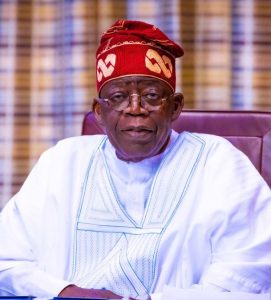 President Bola Tinubu’s recent cabinet reshuffle, which emerged during the 19th Federal Executive Council meeting at the State House in Abuja, has ignited widespread discussion across Nigeria. Notably, Ogun State now boasts four ministers, the highest representation from any single state in the cabinet.
President Bola Tinubu’s recent cabinet reshuffle, which emerged during the 19th Federal Executive Council meeting at the State House in Abuja, has ignited widespread discussion across Nigeria. Notably, Ogun State now boasts four ministers, the highest representation from any single state in the cabinet.
During the reshuffle, Tinubu reassigned ten ministers to new roles, relieved five others of their duties, and nominated seven new ministerial candidates for Senate confirmation. The changes included renaming the Ministry of Niger Delta Development to the Ministry of Regional Development, dissolving the Ministry of Sports Development, and merging the Ministries of Tourism and Arts and Culture into the Federal Ministry of Art, Culture, Tourism, and the Creative Economy.
The new appointees awaiting Senate approval are:
Dr. Jumoke Oduwole (Ogun) – Minister of Industry, Trade, and Investment
Dr. Nentawe Yilwatda (Plateau) – Minister of Humanitarian Affairs and Poverty Reduction
Muhammadu Dingyadi (Sokoto) – Minister of Labour and Employment
Bianca Odumegwu-Ojukwu (Imo) – Minister of State for Foreign Affairs
Idi Maiha (Kaduna) – Minister of Livestock Development
Yusuf Ata (Kano) – Minister of State, Housing and Urban Development
Dr. Suwaiba Ahmad (Kano) – Minister of State for Education
Critics have raised concerns about the concentration of four ministers from Ogun State, suggesting it contradicts the Federal Character principle. However, Allwell Onyesoh, Chairman of the Senate Committee on Federal Character, noted that while Federal Character is constitutionally significant, it is not the sole criterion for ministerial appointments. He emphasized the need for competence in the selection process, arguing that the President retains the constitutional right to appoint individuals based on their capabilities.
As part of a broader effort to reduce government expenses, President Tinubu announced a restriction on the number of vehicles ministers and agency heads may use for official purposes, limiting them to three vehicles. This directive, part of a cost-cutting initiative, also aims to streamline the size of government delegations during both local and international trips.
In January 2024, Tinubu had already mandated a reduction in the entourage size for foreign trips, lowering it from 50 to 20 officials and from 25 to 15 for domestic travel. Additionally, he instructed that ministers should limit their security details to five personnel, comprising four police officers and one from the Department of State Services.
Former Nigerian Bar Association President Dr. Olisa Agbakoba (SAN) defended the President’s prerogative to appoint multiple ministers from a single state, asserting that the only legal requirement is to ensure representation from each of Nigeria’s 36 states. He emphasized that the principle of Federal Character allows for flexibility in ministerial appointments.
Conversely, Senior Advocate of Nigeria Ebun-Olu Adegboruwa expressed concerns about equity, suggesting that the current appointments could undermine inclusivity. He highlighted the potential implications of having disproportionate ministerial representation, urging the government to be mindful of regional sentiments to mitigate calls for separatism.
In response to the reshuffle and the resultant criticisms, legal experts reiterated that while the Constitution mandates at least one minister from each state, it does not prohibit the appointment of multiple ministers from a single state. However, they stressed the importance of ensuring a balanced representation across the federation.
Prof. Mike Ozekhome (SAN) contended that appointing four ministers from Ogun, one of Nigeria’s smaller states, raises constitutional concerns regarding Federal Character principles, arguing that it could foster perceptions of injustice and regional imbalance.
The reshuffle and accompanying measures by the Tinubu administration are seen as part of a broader strategy to enhance governance efficiency while navigating the complexities of political representation in a diverse nation.

